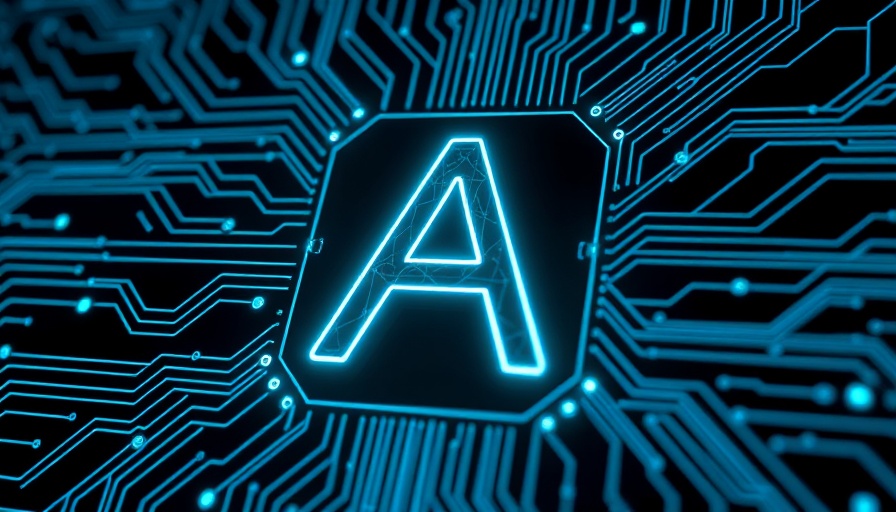
Anthony's Coders Evolution: Claude 3.7 Takes Center Stage
The growing buzz around generative AI has largely focused on titans like OpenAI and Google, but quietly, Anthropic has made impressive strides in tailoring its AI for enterprise use. Their latest release, Claude 3.7, has emerged not just as another AI model but as a potential game-changer in coding efficiency. This dedicated focus on becoming the go-to coding agent for businesses indicates a pivotal shift in expectations for artificial intelligence in the software sphere.
Claude 3.7: Benchmarks That Speak Volumes
A mere glance at the metrics reveals that Claude 3.7 Sonnet, which debuted on February 24, dominates the coding benchmark space. It scored an outstanding 70.3% on the SWE-bench — a significant leap compared to its nearest rivals, OpenAI's o1 with 48.9% and DeepSeek-R1 at 49.2%. This leap signifies that Claude's capabilities extend beyond mere chatter into practical applications that ensure it aligns well with enterprise needs for software development efficiency.
A Closer Look at Claude Code and Cursor Integration
In tandem with Claude 3.7, Anthropic unveiled Claude Code, a command-line tool that particularly caters to developers. Cursor, an AI code editor that defaults to Claude, reached $100 million in annual recurring revenue in merely a year, showcasing palpable market demand for effective AI coding agents. These tools are reshaping traditional coding, providing seamless integration that aids both experienced developers and hopeful non-coders alike in quicker application building.
Why Businesses Are Rethinking AI Models
Anthropic's strategic direction is clear: while competitors scatter their efforts between consumer-facing features, Claude has remained firmly focused on coding performance and enterprise utility. CEO Dario Amodei pointed out a fascinating shift in developer expectations — according to recent data, 37.2% of queries sent to Claude have been related to software development tasks. This is indicative of a broader industry trend, as enterprises are keen to leverage AI for tasks previously outsourced to human programmers.
Hands-On Experiences: Non-Coders Thrive with Claude
In practical terms, even non-developers are now able to utilize AI to create functional applications. Recent tests have demonstrated that entities can build a comprehensive database using Claude 3.7 with minimal coding knowledge, as Claude provides step-by-step guidance in real-time. For instance, the ability to interact through a command-line interface vastly simplifies complex tasks, allowing users to focus on efficiency rather than grappling with intricate coding languages.
The Future Landscape: Coding Transformation
As enterprises come to grips with this evolving landscape, the implications of successful AI implementation are enormous. Companies are starting to realize the importance of experimenting with AI coding agents, as the right tools not only improve productivity but also reduce the bottlenecks faced in traditional software development cycles. Claudia 3.7's flexibility means its role will only increase, especially as it integrates smoothly into existing operations without the steep learning curve typically seen with new software tools.
Strategizing for Success: Embracing AI Agents
CIOs and technical decision-makers should not just observe but actively engage with AI coding technologies — those who hesitate may find themselves at a competitive disadvantage. Just as the iPhone transformed mobile communications, AI coding agents like Claude 3.7 are on the verge of becoming essential tools in enterprise technology strategies. A clear path forward involves creating secure environments where experimentation is encouraged, enabling organizations to harness these powerful tools for innovation.
 Add Row
Add Row  Add
Add 




 Add Row
Add Row  Add
Add 

Write A Comment